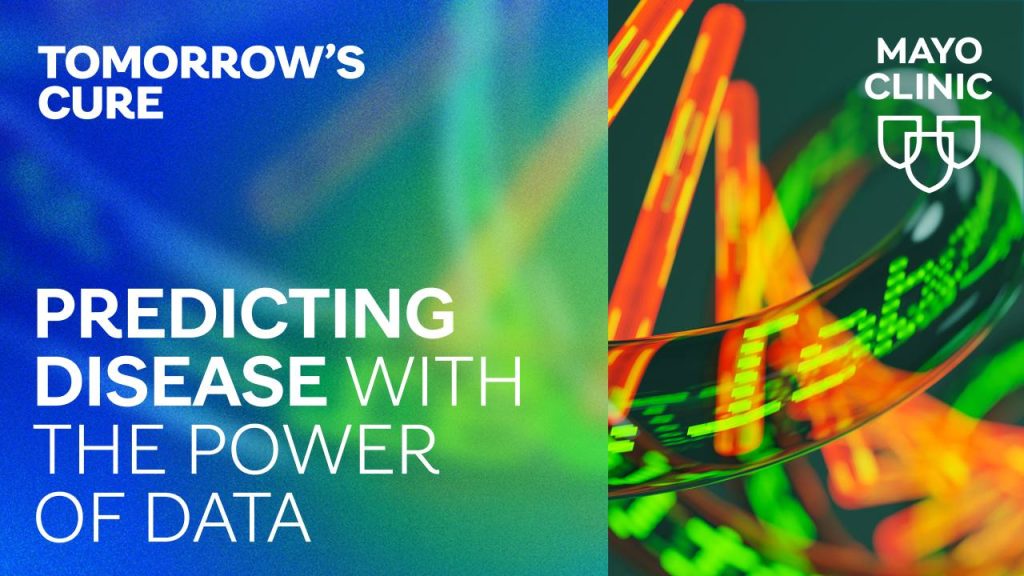-
Medical Innovation
Tomorrow’s Cure: Predicting disease with the power of data

In this week’s Tomorrow’s Cure episode, explore a revolutionary frontier in medicine: the ability to predict disease before symptoms even manifest. Listen to experts at the forefront of medical research who are leveraging cutting-edge technology to potentially make diseases like cancer a thing of the past.
The podcast episode features insights from Dr. Vijay Shah, Kinney Executive Dean of Research at Mayo Clinic; Heidi Dieter, Chief Research Officer at Mayo Clinic and Dwight Diercks, Senior Vice President of Nvidia. Together, they share insights on how predictive medicine could transform healthcare, allowing intervention before illness takes hold.
Until now, most patients have been treated the same—despite the uniqueness of each individual. Experts believe there’s a better path forward.
"The problem with guidelines is they treat everybody the same and in fact, all of us are different, and we have different risks for different types of diseases," said Dr. Shah. "Technologies today allow us to integrate multiomics, which is your gene profile, RNA profile, protein profile, and integrate that with the exposures that you have every day.”
He continued, "That’s why it's been so hard to predict disease because we have not been able to truly integrate these different types of environmental and genetic factors to make a personalized prediction for one's health."
Now, researchers are overcoming these challenges using innovative technologies. Experts are using artificial intelligence to move closer to predicting—and potentially preventing—serious diseases before they develop.
"The data and AI that we're using is light years ahead of what we knew six months ago. It is iterating so rapidly, it's hard to keep up with it,” said Dieter. “So, when it takes 17-years to go from a discovery in a lab to a treatment for a patient, and that 17-year curve has not changed in decades. Data and AI is going to rapidly accelerate it."
And when treatment is necessary, providing individualized treatment is important to improve patient outcomes. While there’s still work to be done, this is the future experts are striving to build.
"Everybody is different. Every cancer type is different and unique in each individual, said Dwight. “So, figuring out how to apply a cure needs to be different going forward, and it can be with the tools that AI brings to doctors."
The potential of this technology is transformative—reshaping care models to be more personalized, data-driven, and effective. Listen to the latest episode of Tomorrow’s Cure to learn more. Explore past episodes and featured experts at tomorrowscure.com.







